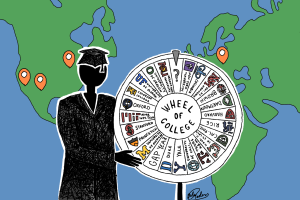Recreation Marijuana? Yes!
February 17, 2021
There is little legislation more important for the upcoming New Mexican judicial session than the legalization of marijauna. Although New Mexico has laws permitting those with underlying conditions to use the medicinal drug, its current laws prohibit recreational use. In 1978, New Mexico became the first state to sign legislation that legalized medical use of marijuana. In 2007, the law was altered with the addition of the Medical Cannabis Program, which allowed possession of cannabis if referred by a physician. In 2018, Albuquerque decriminalized the possession of up to 1 ounce of marijuana, making the offense a $25 fine. Most recently, Governor Lujan Grisham signed SB323 into law, decriminalizing first time possession for adults with a a $50 fine. The government has now decreed a promise to prioritize legalization of recreational use. With the prospect of amnesty closer than ever, New Mexico will soon reap the benefits of legalization.
Amidst economic disaster caused by Covid-19, legalization of marijauna is key to recovery for three reasons. The first is through alleviating unnecessary costs. Nationally, the costs associated with the enforcement of marijuana laws are over 14 billion dollars each year—stripping billions from the economy. Second, the criminal records that follow an arrest made for marijuana possession limit job prospects for the victims of the ban. The lost wages that result once again harm the economy. Perhaps most crucially, the implementation of a weed tax could raise millions of dollars for state infrastructure and programs. Colorado, a state that has already legalized marijuana, has seen a large surplus from their tax, increasing investments in public health services, education and other initiatives. Our neighbor to the north has also seen 10,000 new jobs as a result of the legislation. But looking past the economy, ending the marijauna ban is imperative considering its racist past. Although statistically black and brown Americans use the drug at the same rates as white Americans, they are nearly four times as likely to be arrested for possession. The unjust legacy of these laws hurts hundreds of thousands of New Mexicans every year, perpetuating institutionalized racism in our lowest-income communities. Past records from marijuana offenses are often used for predictive policing, a form of law enforcement that uses pre-existing crime data to target suspects. The flaw in these supposedly technologically advanced systems lies in their targets. Overpolicing in black and brown communities focuses attention on the marijauna arrests in these neighbourhoods, perpetuating a cycle of racism formed by surveillance and arrests. The fight to legalize marijauna goes further than the tangible effects of the ban on our economy—it is an issue of racial justice. The legalization of marijauna is a step towards a better economically prosperous and equitable New Mexico.







